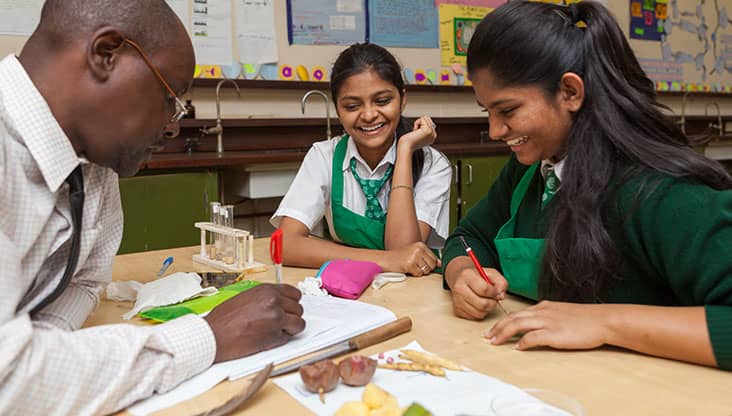
KAMPALA – In the recent past, international schools have sprung up to compete for space with local schools in providing education from kindergarten to primary and secondary level.
International schools currently established in Uganda include Aga Khan High School, GEMS Cambridge International School, Kabojja International School, Kampala International School of Uganda, Rainbow International School and Heritage International School. Others are Ambrosoli International School, Lohana Academy and Montessori Pre-School & Bobo’s Day Care Centre.
For starters, an international school is a learning facility that promotes education in an international environment either by adopting a curriculum such as that of the International Baccalaureate, Edexcel or Cambridge International Examinations, or by following a curriculum different from that of the school’s country of residence.
Given their unique setting different from the locally established schools, international schools come with advantages as Mr Jason Lewis, the head teacher of Rainbow International School Uganda (RISU), explains.
“International schools produce future leaders. Students who go through an international education from a young age develop into independent learners who can critically think and solve problems,” says Mr Jason.
He adds: “They learn how to assess and evaluate situations and are adaptable to different situations. From the exposure of a broad and varied curriculum, students become inquisitive and challenge their teachers.”

Explaining the unique curriculum offered in international schools, Mr Jason says in the kindergarten and nursery classes, their students follow the early years’ curriculum with a mix of learning through play and a focus on the academics from a young age.
He says in the primary section, students follow the inquisitive approach of the international primary curriculum.
“There is a clear focus on teaching and learning subject skills, and students become natural independent learners. In secondary, students in Key Stage 3 (seven to nine years) are taught the English National Curriculum.”
“Emphasis is put on building subject knowledge into the skills learnt in primary, creating a confident learner who is not afraid to take risks and challenge themselves across the curriculum.”
Mr Jason explains that during key stage 4 (10 and 11 years), students follow the Cambridge IGCSE curriculum. Under this programme, he says students study 10 subjects, six of which are compulsory.
Mr Solomon Rachkara, the head of sales and marketing at GEMS Cambridge International Kampala, says international schools encourage independent learning and empower students to embrace responsibility.
“We respect and celebrate our diversity and recognise that there are many things that unite us all, build bridges of knowledge, push boundaries and unite young people and also aim to produce not just great students, but great people who are honest and have integrity,” Mr Rachkara says.

He adds that international schools offer a curriculum that best addresses modern day job needs.
“GEMS has a food techlab where children go and enjoy experimenting with dishes and cuisines from all over the world with guidance from expert chefs, hence enhancing their life skills and creativity,” he says, adding that the school also has state-ofthe- art music rooms, art studio, two swimming pools, indoor and outdoor basketball courts and two football soccer fields
Mr Fagil Mandy, an education analyst, says whereas international schools are good, he adds that there is enough that students would learn in our local schools.
“I think international schools meant to serve the multiplicity racial groups that are in Uganda,” Mr Mandy explains.
He adds that he is not sure on whether the curriculum offered by these schools is far better because it is designed by a different group of people in the world.
“The curriculum for international schools is written for the international community. Me I believe that before you become international, you must be national; the curriculum is written to take over that multiplicity. So in the way it has got its own incompleteness,” he explains.
On why international schools are expensive, the education analyst explains that this is a free market and everybody what he or she wants.
Mr Mandy explains that there is no competition at between students from both the international and local schools because they all do different examinations.
Mr Jason says international schools are multicultural schools with over 60 different nationalities, faiths and religions, adding that this trains students to respect each other’s nationality and faith.
Mr Rachkara also says in international schools, there is closer interaction between teachers and parents, which helps child learning and shaping students’ behaviour.
“The international school has personal tutors to take care of students in absence of parents. A personal tutor is one of the teachers and he or she tutors about 10 students, meaning the tutor knows how they sleep, failures and strengths and at the end of the day, the tutor has to make a report about the students,” he says.





